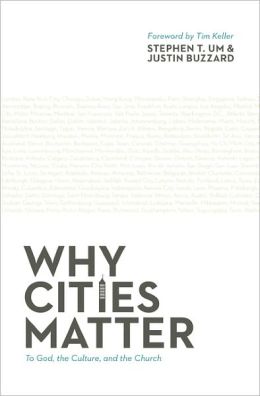I am passionate and frustrated. About what? I am passionate about evangelism and I am frustrated at the seeming apathy towards it from our Churches.
I have a title. It may be the longest title I have ever heard of. I am not trying to be pretentious, but here it is:
Chairman of the Home Mission Committee of the Canadian Reformed Church at Chilliwack.
What a mouthful! 13 Words. 21 syllables. I choke on it when I say it…
I am passionate about evangelism. Our mandate (or part of it) as committee is to stimulate the congregation in their calling to evangelize. I think it is nice that we have this mandate. I have passion for evangelism and love to share with others what I have been given, and I love to help others learn to share their faith as well. But if you are a Christian you should not need any further stimulation than this:
While we were still sinners, Christ died for us.
 If that simple fact does not “stimulate” you to share what he has done for you, then no amount of my sitting in a meeting discussing things over coffee and “boterkoek” is going to help stimulate you to spread the gospel! Now don’t get me wrong, the committee has done some fine work in outreach, and some of us even partake of sharing the gospel message… but have we really stimulated any of you to share your faith? Ok, I know some of you who are taking part in some outreach that is set up by the committee, but something is missing here. Something very fundamental to the spread of the gospel. What is that?
If that simple fact does not “stimulate” you to share what he has done for you, then no amount of my sitting in a meeting discussing things over coffee and “boterkoek” is going to help stimulate you to spread the gospel! Now don’t get me wrong, the committee has done some fine work in outreach, and some of us even partake of sharing the gospel message… but have we really stimulated any of you to share your faith? Ok, I know some of you who are taking part in some outreach that is set up by the committee, but something is missing here. Something very fundamental to the spread of the gospel. What is that?
Elder involvement is missing.
I know that the Church order does not say that elders need to evangelize. I admit that. But it did. For almost 2000 years this was something that was expected of an elder. Then in 1984 the Canadian Reformed Churches decided that the elders should focus only on their own congregations. It was this decision that birthed the Home Mission Committee’s around our federation.
In my opinion, our Federation of Churches have been far too inward looking for far too long. While it is a good thing to guard against heresy and protect against the attacks of the Devil, and in our unity talks we need to ensure the truth is central, but lack of evangelizing for fear of bringing in outsiders is not biblical and is antithetical to the biblical mandate we have as the church to spread of the gospel message. This sectarian fear of outsiders was proven in the decision by Synod in 1984. Here is a quote from Dr. A J de Visser from the Canadian Reformed Theological Seminary:
It is interesting to note that the Synod of Cloverdale (1984) adopted a revised version of the Church Order in which the mandate of the elders was narrowed down to focus solely on work within the congregation. The phrase in the original version that elders should “exhort others with respect to the Christian faith” was deleted from the mandate of elders. In my opinion this illustrates that the Canadian Reformed Churches had become more inward looking than the churches of the Reformation and the Secession.

I said that evangelizing is part of an elders biblical mandate. I should clarify what I mean by this. Hospitality. This qualification is required to being an elder. So, let me ask. What do you think that “hospitality” means? We Canreffers are famous for our hospitality…to each other. We go to each other’s homes for soup and buns and we have dinner together and share what we have with each other and we partake of the communion of the saints and it is all very “gezellig”… but it is also very inward looking. Is this what the Bible means when it mentions hospitality? Yes and No. Of course it is hospitality when we open our homes to fellow believers, but the New Testament explicitly links hospitality with the proclamation of the Gospel:
Mt 10.5-42; Mk 6.7-13; Lk 9.2-6, 10.1-17 – these passages are the accounts of Jesus sending out the disciples and others to proclaim the Good News of the Kingdom. Throughout these accounts, there is an emphasis on entering homes and eating and drinking with hosts who receive them.
Acts 10.24-48 –Peter at the house of Cornelius. Cornelius invites Peter to his home. Once there, Peter proclaims the Gospel, and the Holy Spirit visits the house and the Gentiles present are saved and subsequently baptized. Peter stays with them for several days. Peter and Cornelius are mutual strangers in the context of hospitality. Peter is a Jewish Christian, and Cornelius is a Roman centurion. Yet, hospitality is the bridge that overcomes all of their cultural differences and becomes the means by which God’s salvation begins extending to the Gentiles in force.
Acts 16.11-15 – this is the story of Paul and Lydia. When Lydia and her family are converted and baptized, she invites Paul to stay with them. Note that Paul’s acceptance of Lydia’s offer of hospitality confirms his belief in her salvation.
Acts 16.29-34 –Paul and Silas are in prison, the earth shakes, and the prison doors open, yet no one attempts to escape. The startled jailer is eventually presented with the Gospel message and he responds. His family isbaptized as believers, and he hosts them in his house with a fine meal after washing their wounds.
 There are numerous other stories in the book of Acts, but for the sake of brevity, I will stop there. It is clear that hospitality was a tool in the transmission of the Gospel in the early church. I belive that this is what is meant by hospitality being a criteria for elders. I believe that nothing has changed in this regard, and if it has, it is only because we have missed something, or lost something along the way. Does it not surprise that 98% of our growth is from within the church? I am one of very few in our churches who came from the outside.
There are numerous other stories in the book of Acts, but for the sake of brevity, I will stop there. It is clear that hospitality was a tool in the transmission of the Gospel in the early church. I belive that this is what is meant by hospitality being a criteria for elders. I believe that nothing has changed in this regard, and if it has, it is only because we have missed something, or lost something along the way. Does it not surprise that 98% of our growth is from within the church? I am one of very few in our churches who came from the outside.
I do not think that this blog post is going to change anything; I am not kidding myself. But my prayer here is that Our Lord would awaken in us as a federation the joy of the Gospel message, and a desire to share this news to all who might listen. I would like to see the phrase, “exhort others to the Christian faith” returned to its rightful place in our church order as part of the role of an elder.
So should I send a letter to consistory to appeal to synod to reinstate the phrase? I wonder what the elders in my church would think of that…
Here is one final quote from Dr. de Visser:
It will be healthy for every minister to have some evangelistic contacts outside the congregation. Not only will it prevent him from developing a myopic view of life, it will also give his sermons and prayers an evangelistic flavour which will have a formative effect on the congregation as a whole. The same applies to elders. By definition, they are men who command respect. It would be great if our elders had the reputation that they are not afraid to use the contacts which they have in the broader society to “exhort others to the Christian faith.”
By saying this, I am not suggesting that the responsibility for evangelism should be thrown back entirely into the lap of the office-bearers. Evangelism is a congregational ministry, as we have seen. Both office-bearers and ordinary members should be involved in it.
Read a follow up article I have writter entitled Still Passionate but a little less frustrated.
Read Dr. de Visser’s entire article Here! And please note that I am one of the “Passionate and Frustrated ones” 🙂
 “We are outwardly focussed. We believe our community is a mission field. We do not exist for ourselves, but for the glory of God and our neighbours’ salvation.” That is a quote taken from the website of the Providence Canadian Reformed Church in Hamilton, Ontario. Do you agree with that statement? I believe that the last sentence is Biblical, but do our churches have this outward focus? Can we apply the other two sentences to our own congregations? To ourselves? We may believe that our community is a mission field, but can we honestly say that we are outwardly focussed? Are the Canadian Reformed Churches outward or inward looking? Can we remain confessionally Reformed and be outward focused?
“We are outwardly focussed. We believe our community is a mission field. We do not exist for ourselves, but for the glory of God and our neighbours’ salvation.” That is a quote taken from the website of the Providence Canadian Reformed Church in Hamilton, Ontario. Do you agree with that statement? I believe that the last sentence is Biblical, but do our churches have this outward focus? Can we apply the other two sentences to our own congregations? To ourselves? We may believe that our community is a mission field, but can we honestly say that we are outwardly focussed? Are the Canadian Reformed Churches outward or inward looking? Can we remain confessionally Reformed and be outward focused?
























